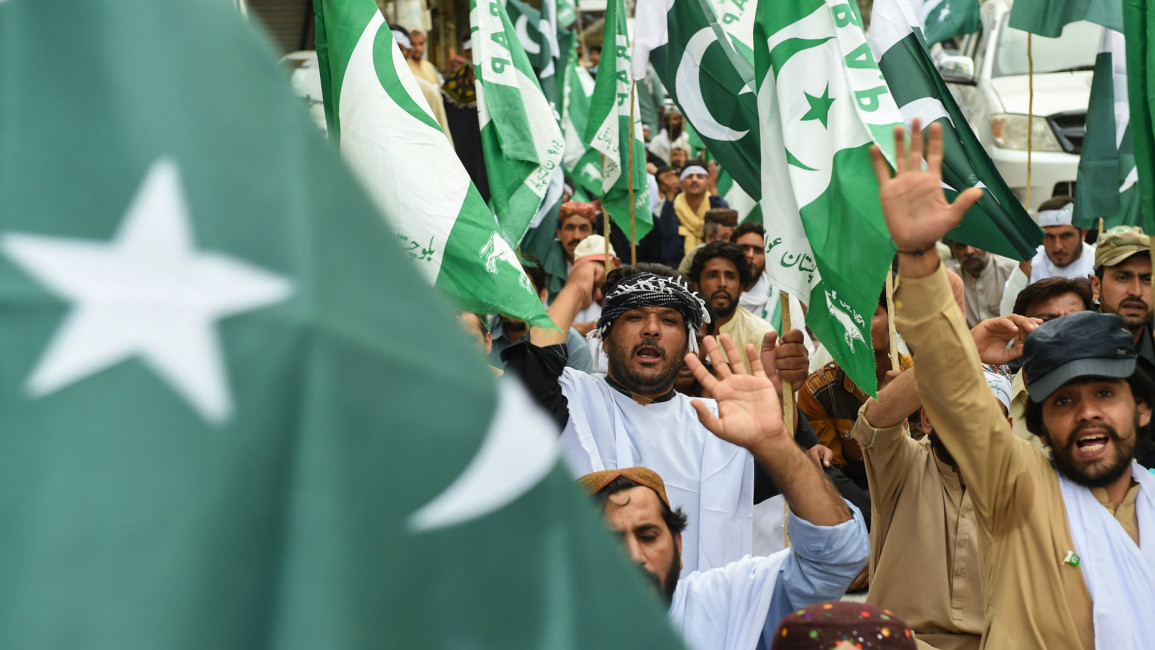Why are Iran and Pakistan bombing each other?
Iran and Pakistan have engaged a round of airstrikes on one another's territories, sparking fears of a wider conflict between Tehran and Islamabad.
Iran struck positions in Pakistan on Tuesday, killing two children, according to Islamabad.
Pakistan responded by recalling its ambassador to Tehran and launching airstrikes of its own inside Iran on Thursday, killing nine people.
The escalation follows years of unrest in the remote border regions of the two countries where separatist aspirations among Iran's Baloch minority have led to waves of killings and reprisals by militias and security forces.
This has led to threats by Iran to escalate its counter-insurgency across the border into Pakistan.
What happened?
Iran used a drone and missile to hit alleged targets of a Balochi separatist group, Jaish Al-Adl, in southwestern Pakistan on Tuesday, killing two children.
Iran said the strike was in response to strikes on its own territory, was focused on Jaish Al-Adl positions, and respected Pakistani sovereignty.
It follows a series of attacks by Jaish Al-Adl militants on security forces in eastern Iran, including an attack on a police station in December which killed 11 officers.
Tehan is also likely concerned that a bombing of a commemoration for Qassem Soleimani in Iran two weeks ago which killed 84 people has made it appear weak on security.
Islamabad responded with airstrikes on bases of two Balochi separatist groups in Iran on Thursday, killing nine people.
Pakistan had earlier returned its ambassador from Tehran and said it will not allow the Iranian ambassador, who is currently out of the country, to return to Islamabad.
China is attempting to resolve the dispute between its two allies.
Who are the Baloch, and where is Balochistan?
The Baloch are a linguistic and ethnic minority in Iran and Pakistan whose 10 million population mostly live in the latter country.
They are predominantly Sunni Muslim making them also a religious minority in Iran where the dominant religion is the Shia branch of Islam.
They live in the mostly remote, border areas of Pakistan and Iran that are among the poorest and least developed regions in the two countries. In both countries, the Baloch are plagued by discrimination, poor public services, neglect by the central governments, and harsh treatment by security forces.
This has seen insecurity and crimes including smuggling thrive in Baloch majority areas, perhaps contributing to the emergence of separatist and Sunni fundamentalist militias.
What is Jaish Al-Adl
Jaish Al-Adl, a separatist and Sunni militant group, is seeking the creation of a homeland in Iran's Sistan-Balochistan and Pakistan's Balochistan provinces.
This has made them a target of both the Iranian and Pakistani militaries looking to stamp-out separatism in their ethnically and religiously diverse nations, although their insurgency is centred on Iran.
Iranian security forces have been a particular target of the Jaish Al-Adl, which includes the Jundullah Sunni militant group.
Jaish Al-Adl is accused of using Pakistan's Balochistan province to carry out cross-border attacks on southeastern Iran, an area blighted by its own security problems. Tehran has accused the US, Pakistan and others of supporting the militia.
Islamabad said it targeted the Balochistan Liberation Army and the Balochistan Liberation Front in eastern Iran this week, which are carrying out their own insurgency campaigns in Pakistan.
Balochistan is plagued by insecurity including attacks on police and army, civilians, and Chinese interests. The region has also become a hotbed for sectarian attacks on Sufi and Shia mosques and shrines by Sunni militants, including Al-Qaeda.




